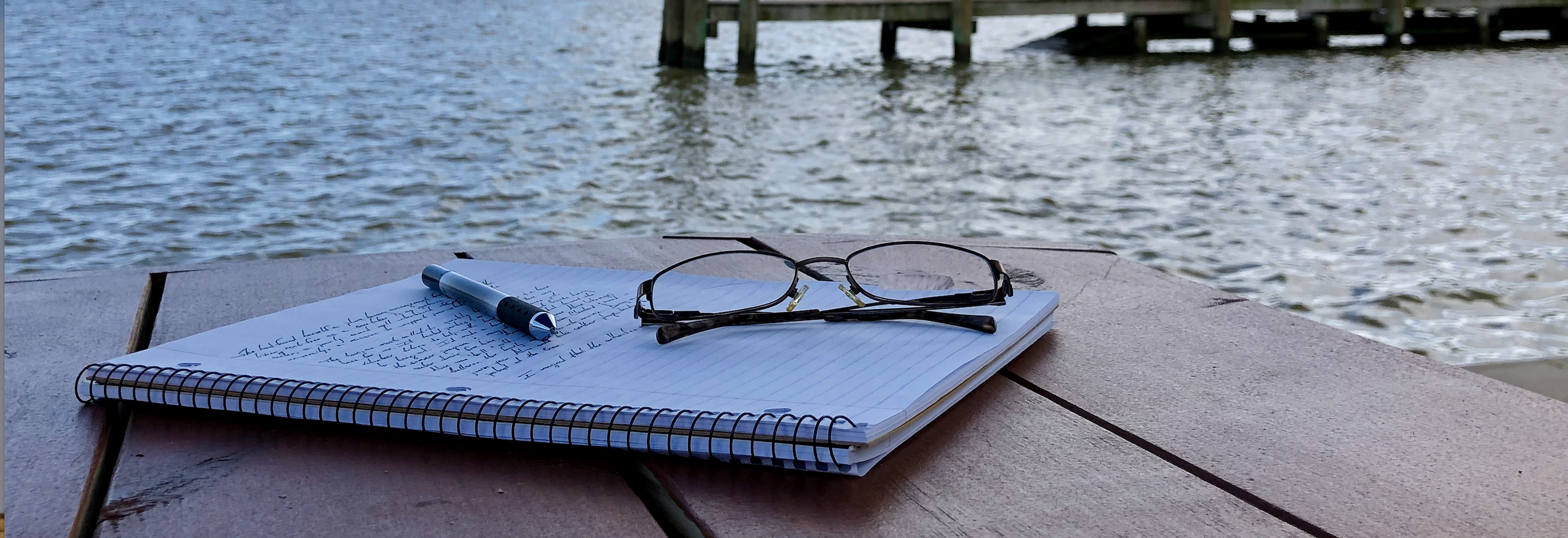Words. I love words. I love how they feel in my mouth, their resonances. I love the imagery, rhythms, and the cadences created when paired with the perfect partners. I love how two words can share the same meaning, but not the same timbre. And don’t get me started on the historical aspect of words. Doctora Jimenez, my college Spanish profesora, ignited this crazy passion during her lecture recounting how the Moorish occupation of the Iberian Peninsula, from 711 to 1492 A.D., influenced the Spanish language. It was fascinating … really! I can lose myself in unending Google searches exploring word origins. I even subscribe to an email service that traces the first known publication of specific words. Can you think of anything more exciting? This subscription comforts me; it assures me that there must be other word devotees salivating over the same information. But, alas, I’ve come to realize, not all share my enthusiasm for words.
On a quick lunch outing to my favorite beachside restaurant, the one where you pay for the view and tolerate the food, I noticed vultures on the side of the road. Not just two or three, but two or three dozen. They were simultaneously beautiful and disgusting. I asked my husband, David, to slow down so I could get a better look. Watching them, my mind filled with questions. Why were there so many? Where do they roost? Do they nest? Are vultures and buzzards one in the same? Does one vulture spot the dead animal and then go back to tell the others? Does one road kill taste better than another or is it all like potted meats, once hit by a car? But the most pressing question was, “What do you call them?” To this, David retorted, “Vuuultuuures.” No. No, that was not what I was asking. What do you call this group of birds? There is a parcel of penguins, a gaggle of geese, a raft of floating ducks, a muster of peacocks, a drift of swans and a brood of chicks. What about vultures?
When our son was little, one of my favorite children’s books was Ruth Heller’s, A Cache of Jewels and other Collective Nouns (Yep, I bought grammar-based books for my toddler). Heller’s rhymes are sing-songie and the illustrations breathtaking. I remember part of the opening line, “A batch of bread all warm and brown is always called a collective noun.” Now, I wanted to know the collective noun for vultures. You must agree that collective nouns are fascinating! Why do we use certain words for a group of one things but not another? Why a flock of sheep? Why a kindle of kittens? Why do we use the same word for a group of two different things, like a pod of peas and a pod of whales? As I obsessed (only slightly), my husband shook his head and asked, “Why does it matter?”
Me: “Don’t you want to know?”
Him: “No, not really. Actually, no, not at all.”
Me: “There are collective nouns for people, animals, objects, and even concepts. There must be a collective noun for everything!”
Him: “Everything?”
Me: “Yes.” I recited a line from the book, “A pride of lions, a lock of hair, an army of ants from here to there.”
Him: “If everything has a collective noun, then what is a room full of Davids?”
I hesitated too long. Thinking himself clever, he responded, “A butt-load. A butt-load of Davids!”
I do not know if all members of a butt-load of Davids share the same lack of comedic flair or skill as wordsmiths, but I do hope they are all able to find the same humor in their wives’ obsessions.



I was always fascinated by the collective noun for a group of crows, but it pales in comparison to a group of Davids
A murder of crows does sound rather Hitchcockish, whereas a butt-load of Davids conjures trombones and jazz!
I think there is a potential band name in this some where and your comment conjured up for me an image of an unforgettable marquee.
” Now Playing – One night only”
” A Butt-load of Davids”
Pleeeese, don’t give him ideas!